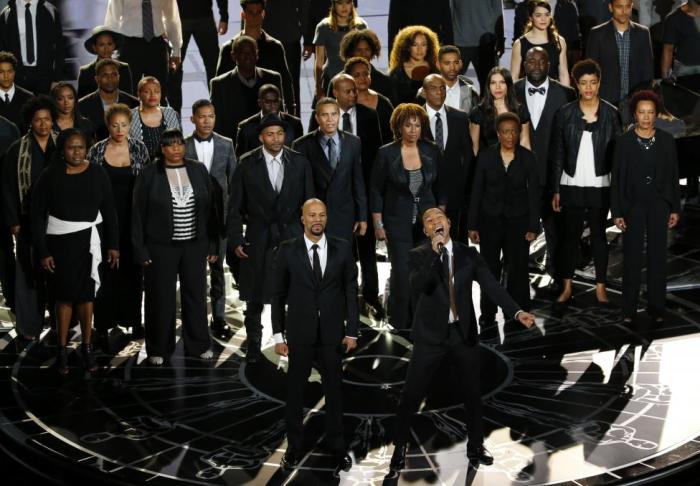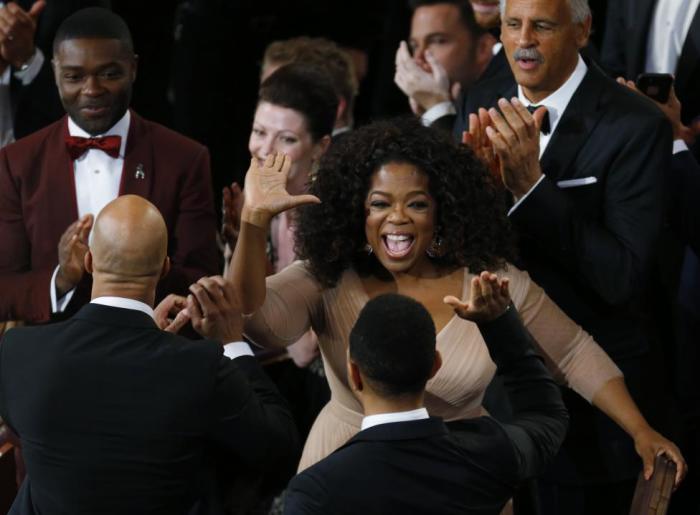Oscars 2015: John Legend, Common Move Crowd With Heartfelt Acceptance Speeches About Civil Unrest (VIDEO)

John Legend and Common took home an Oscar for Best Original Song for their hit song "Glory" on Sunday night and their acceptance speeches moved many in the audience.
The acclaimed artists co-wrote the powerful track for Ava DuVernay's "Selma," which is based on the iconic Martin Luther King, Jr. and the 1965 Selma to Montgomery voting rights marches.
During their respective speeches, Legend and Common drew parallels between the civil unrest that was prevalent during the sixties and that of various social and political issues which are prevalent around the world today.
"Recently, John and I got to go to Selma and perform "Glory" on the same bridge that Dr. King and the people of the civil rights movement marched on 50 years ago," said Common.
The camera panned over to the audience during Common's heartfelt speech and many in the star-studded crowd could be seen teary-eyed.
"This bridge was once a landmark of a divided nation, but now is a symbol for change," he continued. "The spirit of this bridge transcends race, gender, religion, sexual orientation, and social status. The spirit of this bridge connects the kid from the south side of Chicago, dreaming of a better life to those in France standing up for their freedom of expression, to the people in Hong Kong protesting for democracy. This bridge was built on hope. Welded with compassion. And elevated by love for all human beings."
"Selma" actor David Oyelowo, who plays Dr. King in the film, was seen crying when the duo performed "Glory."

Legend then shared his own sentiments about the Academy award-nominated film and suggested that the track "Glory" is more than a song but rather a social movement.
"Thank you. Nina Simone said it's an artist's duty to reflect the times in which we live. We wrote this song for a film that was based on events that were 50 years ago, but we say Selma is now, because the struggle for justice is right now," Legend said drawing applause from the crowd.
At one point media mogul Oprah Winfrey, who co-produced the civil rights film, and Oyelowo were seen congratulating the musicians on their win.
"We know that the voting rights, the act that they fought for 50 years ago is being compromised right now in this country today," he continued. "We know that right now the struggle for freedom and justice is real. We live in the most incarcerated country in the world. There are more black men under correctional control today than were under slavery in 1850. When people are marching with our song, we want to tell you that we are with you, we see you, we love you, and march on."
The three Selma-to-Montgomery marches took place between March 7 and March 25, 1965, and were organized by local African-Americans who advocated equal voting rights. Their attempts to walk the 54-mile highway from Selma to the Alabama state capital of Montgomery proved successful as the movement led to the passage of the 1965 Voting Rights Act, which prohibits racial discrimination in voting.
Last year "Selma" was named the top film of 2014 by the African-American Film Critics Association.





























